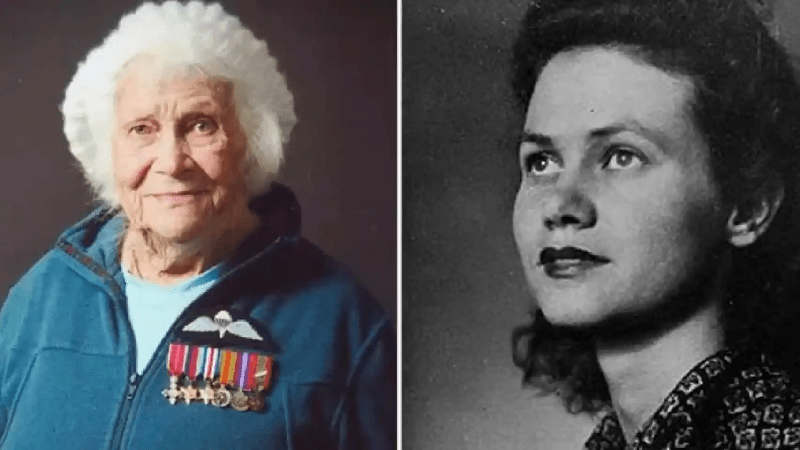Have you ever wondered what it was like to be a spy? spy during World War II? Today, let's dive into the life of Phyllis Latour, the last of the 39 women who served in Sir Winston Churchill's 'army of shadows'. Her story is not only fascinating, but also offers valuable lessons in bravery, intelligence and the art of espionage.

Phyllis Latour: Early Years and WAAF Recruitment
Born in South Africa in 1921, Phyllis Latour was the daughter of a French doctor and a British citizen. At the age of 4, she was orphaned, but that did not stop her adventurous spirit. In November 1941, she joined the Women's Auxiliary Air Force(WAAF) as a mechanical balloon operator. But that was just the beginning.
A Polyglot Talent
Phyllis was no ordinary woman; she was fluent in English and French and had a working knowledge of Arabic, Swahili and Kikuyu. This linguistic ability put her on the radar of the Special Operations Executive (SOE), an organization dedicated to espionage and sabotage in occupied Europe.
Joining SOE: A Personal Mission
In 1943, Phyllis made a decision that would change her life forever. She joined the SOE as revenge for the death of her godfather and godmother, who had been arrested by the Nazis. From that moment on, she became a special agent, dedicated to gathering crucial information for the Allies.
Training and Preparation
Before being sent to France, Phyllis underwent intensive training. Although initially described as a "naive and childish girl," she proved to be intelligent, enthusiastic and courageous. Her training prepared her for espionage and reconnaissance duties, skills she would soon put to use in the field.
Operations in France: Spy Code Name Genevieve
Once in France, Phyllis adopted the code name Genevieve. Her mission was clear: to gather information and assist local resistance movements. Thanks to her short stature, she passed herself off as a teenager to avoid suspicion.
The Art of Disguise
She rode bicycles, sold soap and even chatted with German soldiers. When she obtained military information, she encoded it and passed it on in ingenious ways, such as hiding codes in a shoelace she used to tie up her hair.
Phyllis Latour: Challenges and Overcoming
The work of espionage was not without its dangers and challenges. On one occasion, while transmitting messages in Morse code, two German soldiers broke into her hiding place. With astonishing calm, he managed to convince them that he had a contagious disease, causing them to quickly retreat. His bravery and cunning were truly exceptional.
Contributions to the Resistance
Genevieve's messages were vital to Allied operations. She provided precise locations for bombing raids and supplies, contributing significantly to the disruption of enemy operations. Her service was invaluable to the French resistance and Allied forces.
Life After the War: A Lasting Legacy
After the war, Phyllis married and moved to several countries before settling in New Zealand. Although she rarely spoke of her past, her story came to light years later, earning her accolades such as the French Legion of Honor. Her legacy as a spy and heroine lives on, inspiring new generations in the field of security and espionage.
Conclusion: Phyllis Latour, morethan a Spy, a Heroine
Phyllis Latour's story shows us that bravery and intelligence can make a tangible difference in the world. She was not only a skilled spy, but also a courageous woman who risked her life for the greater good. Her story is a testament to the impact a person can have when they are willing to face challenges with courage and cunning.
Feeling Inspired?
If you have been fascinated by Phyllis' story and are interested in the world of security and espionage, we invite you to explore the solutions we offer at ESPIAMOS. Here you will find products and services that will help you feel more secure in your daily life.






 WhatsApp
WhatsApp Telegram
Telegram


